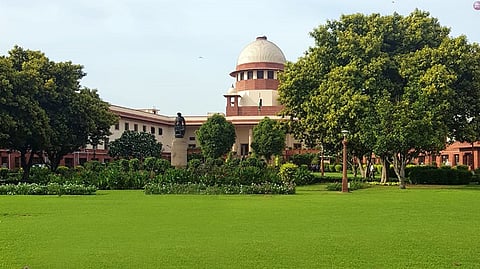
- News
- Columns
- Interviews
- Law Firms
- Apprentice Lawyer
- Legal Jobs
- हिंदी
- ಕನ್ನಡ

The Supreme Court on Friday cautioned an advocate against filing petitions related to Section 482 of the Criminal Procedure Code (CrPC) under the garb of Article 32 writ petitions [Dharmraj Singh v. State of Bihar and ors].